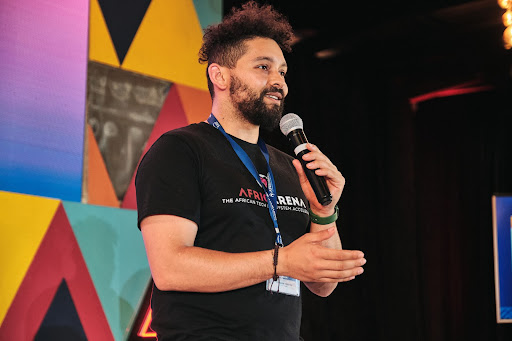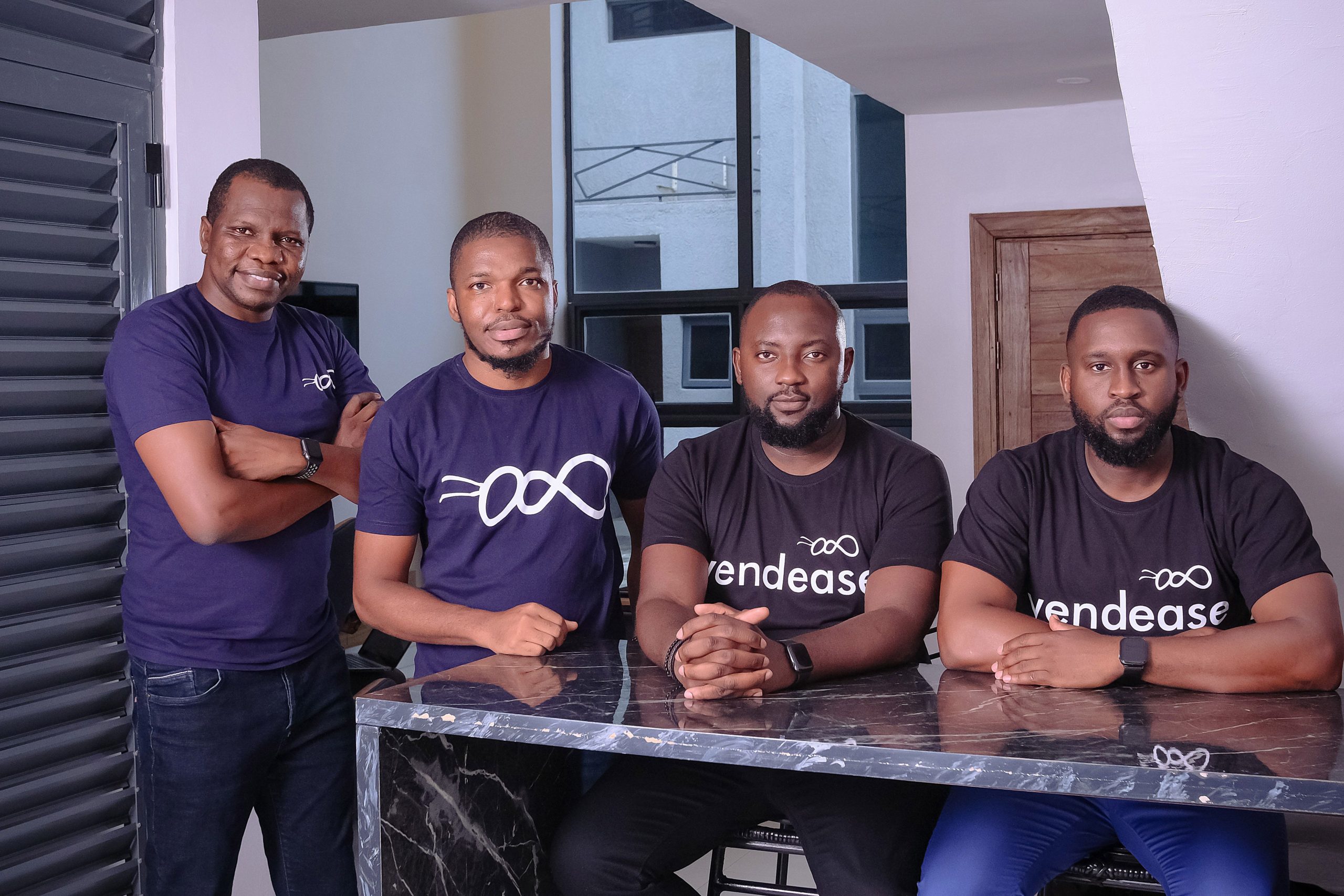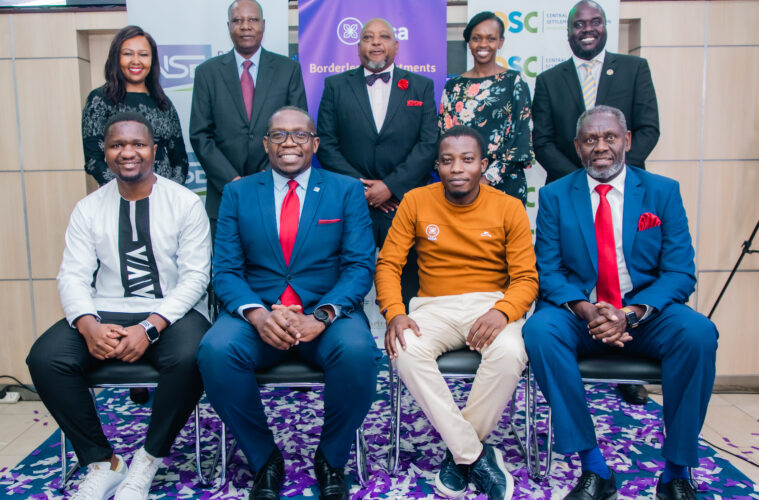
IN PARTNERSHIP WITH

Happy salary day 🎊
The second episode of The Next Wave Show is live!
ICYMI, we’re still hoping to hear your thoughts on how we did in 2022 and what we could do better in 2023. By sharing your candid opinion with us, you might be the lucky winner of a $50 gift card.
CRYPTO MARKET

|

|

|
|---|---|---|
|
Bitcoin 
|
$16,572 |
+ 0.70% |
|
Ether 
|
$1,202 |
+ 2.88% |
|
BNB 
|
$299 |
+ 1.01% |
|
FTX Token 
|
$1.33 |
+ 3.06% |
|
Binance Coin |
$1.00 |
0% |
|
|
Source: CoinMarketCap
|
|
* Data as of 20:50 PM WAT, November 24, 2022.
QUICK FIRE 🔥 WITH NATHANIEL WITBOOI
Nathaniel Witbooi is programme manager and ecosystem lead at AfricArena. He has evaluated over 400 startups and accelerated 80 startups on the African Continent from 35+ countries in 2022.

Explain your job to a five-year-old.
My job is to find people who would like to create games for people to play. I then host a party to connect them to people who can give them pocket money to try and build their dream game and teach others how to play and buy the game they create. I connect new and old friends to work together to make the world a better place because it’s not fun playing a game by yourself.
What did you want to be as a child, and are you living the dream?
I wanted to be an/singer/songwriter. I am most definitely living the dream, with over 100,000 people streaming my music on Apple Music, Spotify and other streaming platforms globally! I still make time to live out the promise I made to little Nate. If I am being honest with myself, sometimes I wish I had more time to be creative, but impacting and stimulating the African economy is just as rewarding.
What’s the most exciting thing about South Africa’s tech ecosystem?
There are numerous exciting variables, but the most recent development evaluates the total number of 100 exits in the African continent between 2020 and 2022. The data provided by Max Cuvellier from the Big Deal, shows that South Africa has seen 33 startups exit over the past two years. It seems to be the highest amount of publicly disclosed exits on the African continent.
What are the most exciting and exhausting aspects of building communities and ecosystems for Africa’s tech?
The most exciting thing is meeting different communities and people across the African continent. It tends to break the veil of what you think the world is like versus what it is. I would call the experience sobering in nature.
You get to debunk all the sensational media stories about regions, and learn about people, communities and the commonalities of societies. It has changed the way I view the world, and given me a sense of respect for people on the ground hustling and the challenges each region faces while scaling and attempting to do business in Africa.
The hardest part of the job is the time you miss out with your family. Travelling is definitely a bonus, but it forces you to reflect on the micro-influential communities that impact you. To put it in layman’s terms, I tend to miss my family a lot and wish I could spend more time with them.
As someone with wide experience in programme management, what are the most programme-related critical changes you’ve seen over the past decade?
Programme management has become more mobile.
When you think about programmes in the past, all you needed was a framework, a curriculum and an audience. These days you find it more complicated as you need to ensure that whatever you create or curate has a level of impact and criteria to evaluate the outcomes of your program.
You have a complex group of people and stakeholders coming closer together, bringing various innovative industries into a hybrid merging ecosystem. You can simply say that there is no longer a clear cookie cutter that speaks to a simple vertical without touching on multiple transversal points. The world is accelerating at an exponential rate and the key is to remain agile, keep up to date with relevant data and build a strong network to stay informed on the ever-changing innovative landscape. There’s nothing worse than creating a panel, curriculum or mentorship session that is outdated and serves no purpose towards creating impact or change.
Programme management has evolved from curating good—focused—content to curating relevant and impact.
What’s something you love doing that you’re terrible at? And something you really do not like doing that you’re great at?
I’m terrible at drawing. I do enjoy doodling and trying to paint. Unfortunately, it’s a skill I can’t master in this lifetime. My sister’s got that talent.
I am however really good at sales, I mean I like to call it partnerships, for lack of a better word. But even though people say I’m gifted at it, I still don’t like the idea of sales targets. I believe it’s due to my strong conviction to build a valuable community and wanting to change the world by creating fair access to resources. That’s why programme management is the best of both worlds for me.
If you could be any Marvel/DC superhero, who would you be and why?
Hands down, The Flash. I love Barry Allen because just like the Tech/VC Industry I’m in, I appreciate that he does his research. He’s very data-savvy, smart, empathetic, loves to problem solve, quick on his feet, pivots fast, can wear many hats, and gets tasks done quickly. Hands down the perfect fit for me.
Receive money from family and friends living abroad in minutes this holiday season with $end.
Visit send.flutterwave.com and do it now!
This is partner content.
MORE LAYOFFS: QUIDAX AND VENDEASE
This week, at least three African startups have announced layoffs.
Yesterday, TechCabal reported on Egypt- and Dubai-based mobility startup Swvl laying off even more employees barely six months after it laid off a third of its workforce.
Yesterday, tech publication NotADeepDive reported that two more startups—Quidax and Vendease—had laid off employees this week.
At Quidax…
Nigerian crypto startup Quidax reportedly laid off 25% of its workforce—about 20 people.
The news comes three months after the startup reportedly enforced salary cuts as high as 50% for team leads.
Yesterday morning, on a company-wide call, CEO Buchi Okoro informed employees that the layoffs were a way of responding to changing conditions in the crypto markets.
Following the crypto high from 2021, Quidax rode that wave, starting off the year with a notable marketing budget that involved hiring music producer Don Jazzy as brand ambassador, and sponsoring the latest edition of reality TV show Big Brother Naija.
Crypto, however, has taken a hit this year with bitcoin dropping from $68,000 in November 2021, to $16,000 this year. Funding, investment, and trust in crypto have also dropped since then with crises like the FTX bankruptcy worsening the situation.
At Vendease…

Food procurement startup Vendease also reportedly laid off employees.
Despite raising $30 million in September, over 40 people have been laid off from the startup since Tuesday.
While Vendease is yet to comment on why these layoffs are happening, laid-off employees—whose terminations were effected immediately—have been offered two-month severance in lieu of notices.
HISA LAUNCHES SHARES TRADING PLATFORM

Kenyan wealth-tech startup Hisa has announced the public launch of its app which allows anyone in Kenya to invest in Kenyan listed stocks, US stocks and ETFs directly from their phones using mobile money.
Hisa’s mission
Hisa aims to democratise the Africa retail investment space, which the company claims suffers from limited investment options, lack of information and very low financial literacy levels, through micro-investments.
More about Hisa
The platform enables users to start or follow discussions, read the latest business and finance news from reputable media partners, get real-time market updates, learn from experts and listen to podcasts on topics ranging from technology, and personal finance as well as interviews with thought leaders.
“Today, we are very excited to launch Hisa which will allow Kenyans to invest and build wealth with minimal investments. Through Hisa anyone in Kenya can invest in their favourite companies such as Safaricom, KCB, Equity, Tesla, Apple, Microsoft and many more,” said Erick Asuma, co-founder and CEO.
Bigger picture: Hisa also announced that they will be working together with the Nairobi Securities Exchange to unveil the fractional investing of Kenyan stocks after the partners received regulatory approval.
Increase your online sales with a Paystack Storefront – a free, beautiful seller page that helps you bring creative ideas to life.
👉🏾 Learn more at paystack.com/storefront.
This is partner content.
TC INSIGHTS: FUNDING TRACKER
This week, Tanzanian retail-tech company Ramani raised $32 million in series A funding. The round was led by Flexcap Ventures and Jared Schreiber, the founder and CEO of Infoscout.
Here are the other deals this week:
- Djamo, a consumer finance startup based in Tanzania raised $14 million in an undisclosed round. The round was led by Enza Capital, Oikocredit and Partech Africa, other participating investors included Janngo Capital, P1 Ventures, Axian and Launch Africa.
- Egypt’s digital pharmacy platform, Grinta, raised $8 million in seed funding led by Raed Ventures and Nclude with participation from Silicon Valley-based Endeavor Catalyst and 500 Global.
- Nigeria-based fintech, Pivo, received $2 million in seed funding from Precursor Ventures, Vested World, Y Combinator, FoundersX and Mercy Corp Ventures.
- Kenya’s supply chain and logistics company Leta raised $3 million in pre-seed funding from 4Di Capital, Chandaria Capital, Chui Ventures, PANI, Samurai Incubate, and Verdant Frontiers Fintech.
That’s it for this week!
Follow us on Twitter, Instagram, and LinkedIn for more funding announcements.
TC LIVE: HARNESSING THE POWER OF CRYPTO INVESTMENTS

Join us this morning on TechCabal Live where we’ll discuss how Africans can grow their wealth securely through crypto investments, amidst the inflationary environment.
Timi Odueso, a reporter at TechCabal will discuss this with:
- Chris Ani – CEO, DABA
- Arindam Roy – CEO and Co-founder, Pillow Fund
- Deborah Ojengbede – CEO, AFEN Blockchain Group
To get more insight on this, register here.
This event is brought to you by TechCabal in partnership with Pillow Africa.
At the 2022 hackfest by Ingressive for Good, 17 developers got to build innovative ID solutions using verified.Africa’s API. See how they got on here.
Live in Ghana, SA, Nigeria and Kenya, Verified’s API allows you to confirm and onboard the identity of one or thousands of customers in seconds. Learn how to secure your business at verified.africa/business.
This is partner content.
IN OTHER NEWS FROM TECHCABAL
Meet the French company looking to revolutionise access to content in Africa.
Stack Overflow grew revenue by 33%, according to Naspers’ financial results.
Kenya clears Kandon Technologies of money laundering allegations.
JOB OPPORTUNITIES
- Binance – SEO Content Specialist – Lagos, Nigeria
- Klasha – Senior Product Manager, Senior Product Designer – Lagos, Nigeria
- ETAP – Growth Associate – Africa (Remote)
- Digital Vision East Africa Limited – Android Developer – Nairobi, Kenya
- Optica Limited – Data Analyst – Nairobi, Kenya
- Habaripay (GTCO) – Front End Developer, UI/UX Designer – Nigeria
- Fooji Inc –Full Stack Developer – (Africa) Remote
- MTN – Senior Manager, Digital Marketing – Nigeria
- Big Cabal Media – Learning & Development Executive, Software Developer, Commercial Director, Sales Associate – Lagos, Nigeria (Hybrid)
- Zikoko – Money Writer, Inside Life Writer, HER Writer, Copy Editor – Remote
- TechCabal – News Editor – Africa
There are more jobs on TechCabal’s job board. If you have job opportunities to share, submit them at bit.ly/tcxjobs.
What else is happening in tech?
REFER A FRIEND

| Click to share | |||
Share your unique link | |||
| https://techcabal.com/referral/?email={$email} | |||
Share on social | |||
    | |||
| Powered by Viral Loops | |||



























